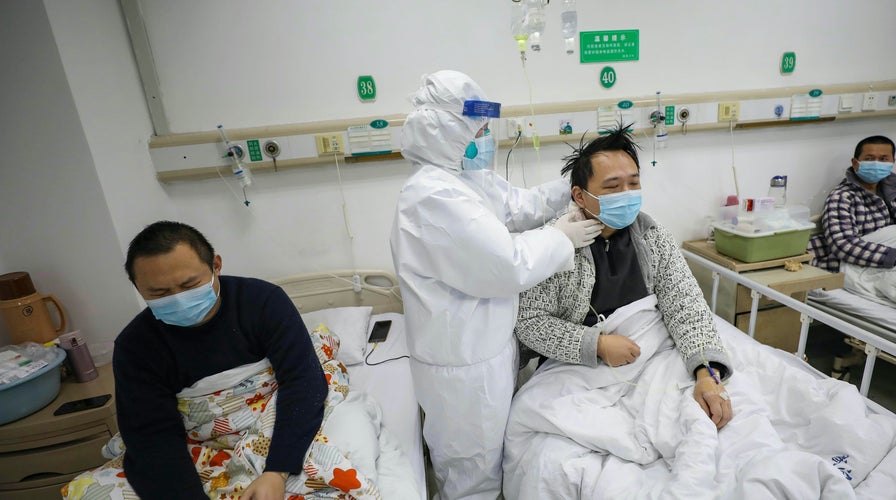Fox News Flash top headlines for April 29
Fox News Flash top headlines are here. Check out what's clicking on Foxnews.com.
Get all the latest news on coronavirus and more delivered daily to your inbox. Sign up here.
Concerns that SARS-CoV-2 can be spread through the air have increased after researchers in Wuhan, China discovered the genetic material of the coronavirus in airborne droplets in two hospitals, according to a new study.
The research, published in the scientific journal Nature, found the virus' ribonucleic acid (RNA) in different areas of the two hospitals in February and March. Although the RNA discovered in isolation wards and ventilated patient rooms was "very low," there was an "elevated" level in patients' toilet areas, the researchers found.
"Although we have not established the infectivity of the virus detected in these hospital areas, we propose that SARS-CoV-2 may have the potential to be transmitted via aerosols," the researchers wrote in the study's abstract. "Our results indicate that room ventilation, open space, sanitization of protective apparel, and proper use and disinfection of toilet areas can effectively limit the concentration of SARS-CoV-2 RNA in aerosols."
HEARTBURN MEDICATION BEING TESTED AS CORONAVIRUS TREATMENT IN NYC HOSPITALS
Currently, there is no known scientific cure for the disease known as COVID-19, however, a number of drugs are being tested to see if they can treat it.
The findings from Wuhan, the initial epicenter of what would eventually become a global pandemic, follows other research that the novel coronavirus could be airborne.
In March, a joint study by the University of Nebraska Medical Center, the National Strategic Research Institute at the University of Nebraska, and others found genetic material from the virus that causes COVID-19 in air samples from both in and outside of confirmed coronavirus patients’ rooms. The findings offer “limited evidence that some potential for airborne transmission exists," researchers said, though they warned that the findings do not confirm airborne spread.
A separate study also published in March suggested that the novel coronavirus COVID-19 can remain in the air for up to three hours and live on surfaces such as plastic and stainless steel for up to three days.
"Our results indicate that aerosol and fomite transmission of HCoV-19 is plausible, as the virus can remain viable in aerosols for multiple hours and on surfaces up to days," the researchers wrote in the study, which has not yet been peer-reviewed.
CLICK HERE FOR COMPLETE CORONAVIRUS COVERAGE
As of Wednesday morning, more than 3.1 million coronavirus cases have been diagnosed worldwide, more than 1 million of which are in the U.S., the most impacted country on the planet.
Fox News' Madeline Farber contributed to this story.









































